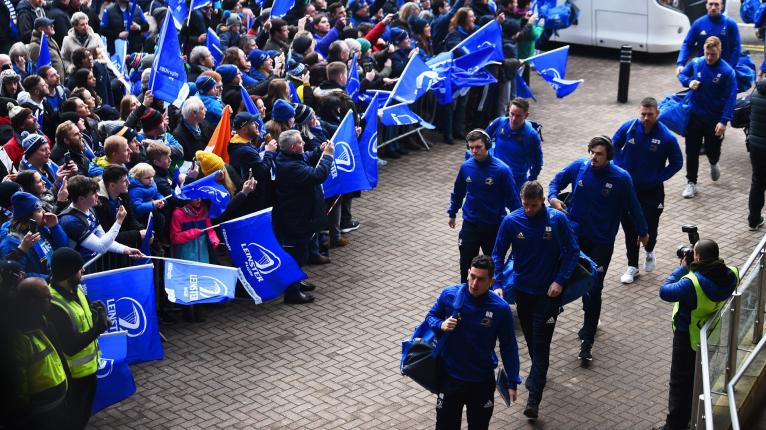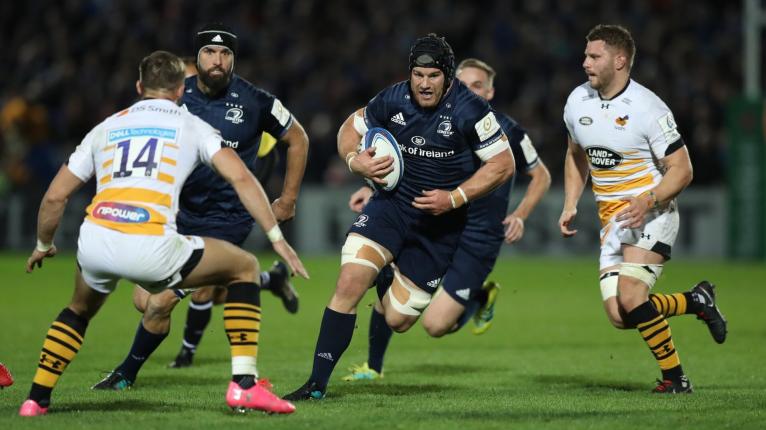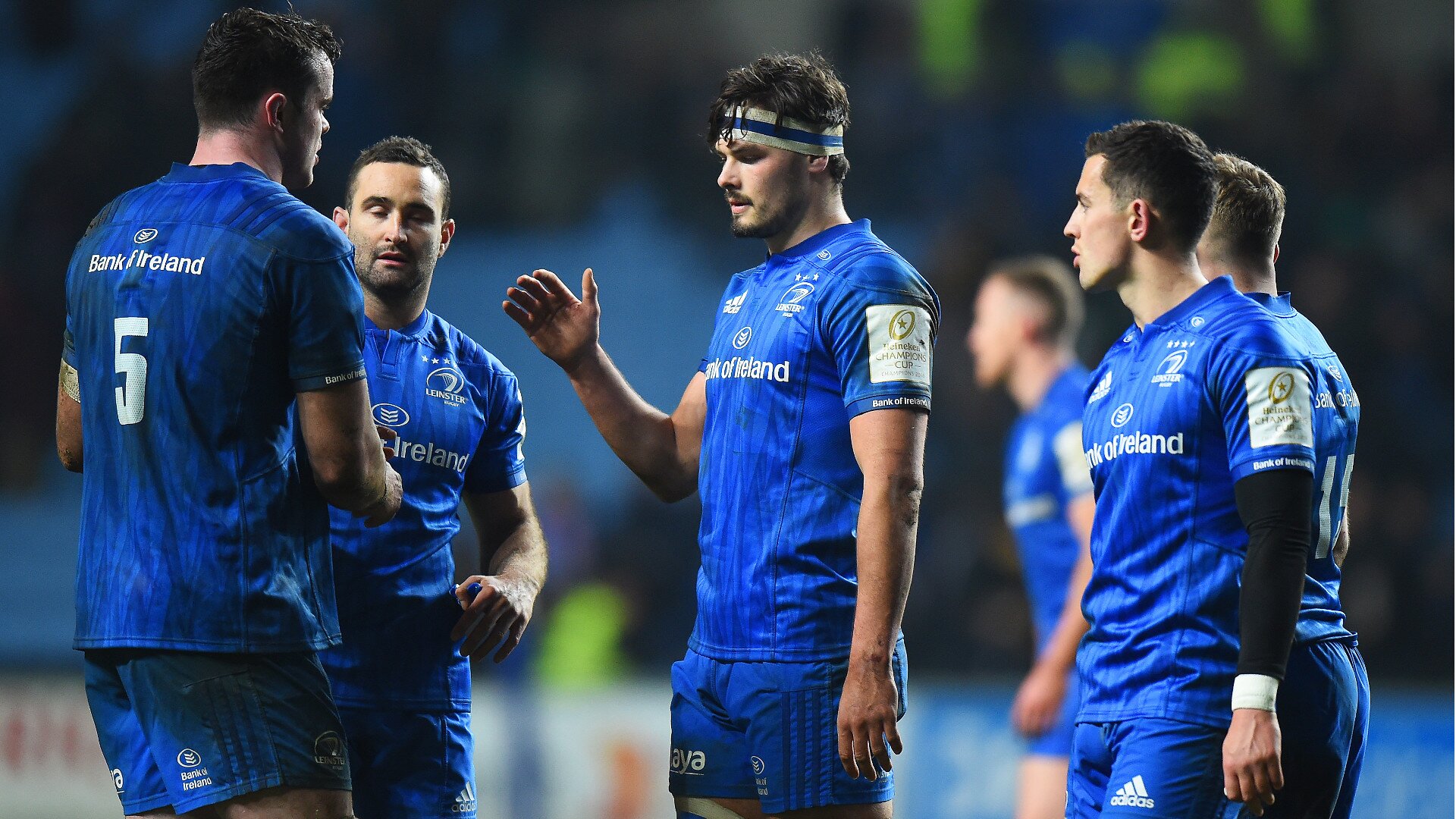The 'new model' athletes fresh off Leinster's academy production line set to stalk the PRO14

Here it is, the time of season when reigning European Cup holders Leinster stand out from the crowd for very different reasons.
The Irish province is globally admired for its near annual consistency in competing for cup and league trophies at the business end of a campaign.
However, they have also developed a canny knack under Leo Cullen for best managing their resources in the PRO14 when Ireland’s Six Nations commitments take precedence.
It’s no mean feat. Leinster accounted for 17 of Joe Schmidt’s original Irish squad of 35 players in 2016 (48.5%), 15 of the 40 in 2017 (37.5%), 18 of the 36 in 2018 (50%) and last week they had 16 in the 38 announced for 2019’s tournament (42.1%).
No matter the heaviness of this national demand, however, they have yearly been able to cope during the traditional four rounds of league fixtures – rounds 14 through to 17 – played during the spring Test rugby window.
Continue reading below…
Before Friday night’s latest round 14 win over Scarlets, they had only lost one of a dozen games played under Cullen at this time of year over the last three seasons.
Fifty-one out of a possible 60 points bagged. A strike rate that left next-best rivals – the Irish trio of Connacht on 46 points, Ulster and Munster with 35 points each – trailing in their wake, never mind mention of Welsh, Scottish and Italian adversaries. Impressive.
Leinster’s bottom line is winning European Cups, but performing well in low-key league games during the Test window is non-negotiable for Cullen.
When Leinster’s impeccably high standards last dropped in spring 2015, the province shockingly lost to struggling Dragons and then needed an 80th minute try for a win bonus against minnows Zebre at the RDS. This uncharacteristically shoddy home form wasn’t helped by a loss at Scarlets and a draw at Ospreys.
Just six tries were scored in 320 minutes, their eight-points-from-20 haul ranking them joint-eighth best in that spring’s four-match block. It didn’t go down well in the boardroom and ultimately cost Matt O’Connor his job even though Leinster took eventual champions Toulon to extra-time in a European semi-final in Marseille.

O’Connor blamed the level of Ireland call-ups for the slump, an accusation that led to a heated row with Schmidt and IRFU boss David Nucifora. His defence was undermined by the fact Leinster had won all four matches the previous spring when Ireland captured the 2014 Six Nations title with 19 from Leinster in their 36-strong squad (55.8%).
Having been part of the Irish system as a player, Cullen is more in tune with the national-team-comes-first ethos of the IRFU. Stacks of provincial guys away? No problem is his constant response, his perspective being that a Six Nations window minus his stars instead provides ample opportunity to glimpse the next taxi off the rank in the province’s fast-producing talent conveyor belt.
Jack Conan, Tadhg Furlong, Ross Molony, Ed Byrne, Will Connors, Max Deegan and Ciaran Frawley are just some names of recent vintage that have made first starts or debuted off the bench in league rounds 14 to 17.

Some home performances have been richly entertaining, too. Eight tries against Zebre in 2016. Seven versus Scarlets in 2017. Ten against Kings last February. Fifty-eight tries in total in their dozen games under Cullen, who has now successfully resumed this spring show with Friday’s night success over Scarlets. Next up is a trip to Zebre before South African duo Kings and Cheetahs come to the RDS. Four wins from four? It’s a very achievable target.
Cullen likes rolling the dice. Ten of the 19 players in Leinster’s academy have already played with the senior team, a half-dozen (Oisin Dowling, Jack Kelly, Jimmy O’Brien, Hugh O’Sullivan, Paddy Paterson and Scott Penny) making the breakthrough this term from the laboratory manned by Peter Smyth, Cullen’s old pal from Blackrock.
This spring is already no different in this blood-them-young approach. Seven academy apprentices were in the 23 that faced Scarlets, but the starting back row – Deegan, Penny and Caelan Doris – is the unit to watch evolve in the coming weeks. They are the type of hulking personnel who underline the powerful next wave coming through the ranks.

They haven’t hung about breaking onto the scene. A Leinster academy apprenticeship is designed to last three years, but Deegan, 22 since October, and Doris, 21 next April, each only needed one year’s tuition before earning full professional contracts.
Penny, a year-one academy member who only turns 20 next September, can potentially be similarly fast-tracked to full status given his good impression since making a November debut against Ospreys.
They’re a trio who pack a punch, too. Their vital statistics – Deegan: 1.93m/109kgs, Penny: 1.82m/100kgs, Doris: 1.94m/106kgs – are more than a match for seasoned pros at the club like Conan: 1.93m/111kgs, Sean O’Brien: 1.88m/108kgs, Rhys Ruddock: 1.91m/111kgs and Josh van der Flier: 1.85m/98kgs, who have been away this week in Portugal with Ireland. Dan Leavy: 1.91m/106kgs would also have been in the Algarve but for his need to dust off injury cobwebs following his stellar 2018.
The worrying thing for Leinster’s rivals is this stable of rising new thoroughbreds doesn’t end with Deegan, Penny or Doris. Connors: 1.94m/102kgs, who needed just a two-year apprenticeship, turned pro last summer as did Josh Murphy: 1.96m/107kgs, who is a slightly more late developer as he needed the full three years before earning his stripes.

Age is now very much on the side of these five back row newcomers spoiling for Cullen’s attention. With O’Brien 32 in February, Ruddock 29 next November and Conan 27 next July, these youngsters are sleek, newer models whose talents have enhanced a Leinster roster that lost Jamie Heaslip through retirement at the age of 34 and saw Jordi Murphy, 28 in April, decide last summer his future was best served north up the Irish M1 in Ulster.
Deegan is the current pick of the breakthrough crop, already on 35 appearances and involved in the Champions Cup. But with spring in the air, other rookies are grasping their chance to also impress.
Doris was the best ball-carrying forward on Friday night, claiming 40 meters from eight carries, while Penny topped the game’s tackling charts with 20. They are more than decent figures, numbers that underline how the province’s second string pedigree has Leinster yet again poised to stand out from the PRO14 crowd during a Six Nations window.
—
ROUNDS 14, 15, 16 & 17 PRO14 TABLE
(2015/16, 2016/17, 2017/18)
W D L BP PTS
Leinster 10 1 1 9 51
Connacht 10 0 2 6 46
*Ulster 7 0 4 7 35
Munster 7 0 5 6 35
Scarlets 7 1 4 4 34
Cardiff 7 0 5 6 34
*Ospreys 7 0 4 5 33
Edinburgh 5 0 7 7 28
*Glasgow 5 1 5 4 26
Treviso 4 0 8 3 19
Dragons 0 1 11 5 7
*Zebre 1 0 2 10 6
*Glasgow, Ulster, Ospreys and Zebre’s round 17 games in 2018 were postponed due to bad weather and played in mid-April long after the Six Nations had finished.

























